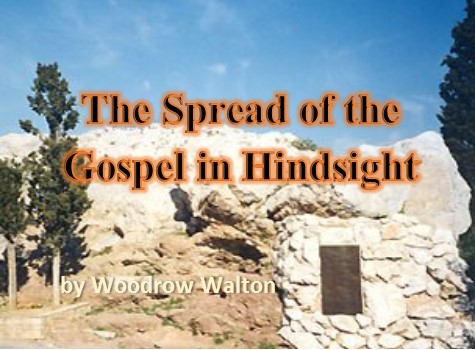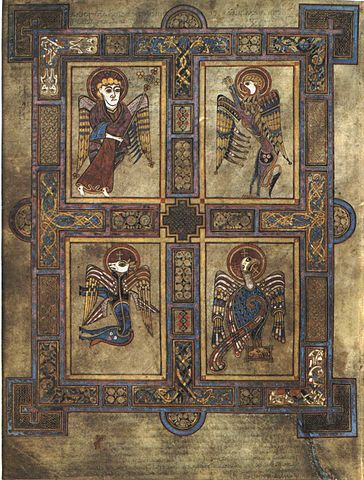The Spread of the Gospel in Hindsight: The Church’s First 1452 Years
What can Christians today learn from the successes and failures of Christians in the first fifteen centuries of the breaking out of the Good News of Jesus the Christ? This article by historian Woodrow Walton is an Epilogue to The Gospel In History series.

With apologies to the Gregorian Calendar, A.D. 28 is selected as the date of the Resurrection of our Lord. Fifty days after the Resurrection, at the time of the festival of First Fruits, also known as Pentecost, the power of the Holy Spirit fell upon Jesus’ disciples. They were now His apostles and Peter became the lead spokesman. When Peter proclaimed Jesus as both “Lord and Christ,” there were among his audience visitors from countries bordering the Persian Gulf, lands approximate to the Caucasian and Kurdistan mountains, westward to Libya in northern Africa, and from what is now Turkey onward along the northern Mediterranean coast to Rome and beyond.

This article is part of The Gospel in History series by Woodrow Walton.
Image: The Books of Kells by way of Wikimedia Commons.
The Gospel spread quickly into the Mesopotamian-Tigris plains, northward beyond Antioch, and crossed the Aegean Sea into the Balkans and on to the Italian peninsula. It went westward across the whole extent of the North African coast fronting the Mediterranean. Acts 2:9-11 enumerated thirteen different geographical locales from Elam, bordering Iran, to Cyrene close to present day Benghazi, Libya.
This expansive geography from the Persian Gulf to the western edges of Africa indicates the eventual spread of the gospel from western Asia to the western edges of the Roman empire. The early Christians spread across this expanse within a matter of seventy-two years. The flourishing of individual Christian communities from east to west within a relatively short time occurred without benefit of motorized conveyances. The initial thrust was from Jerusalem to Damascus in western Syria and then along the Tigris-Euphrates valley. The martyrdom of Stephen initiated a spread northward. The ministry of Philip the deacon spearheaded the thrust into the upper reaches of the Nile Valley, Egypt. Out of Libya and Cyprus were the initiators of the church in Antioch, and out of Antioch into what is now Turkey. Who are these travelers who speak of Jesus who is said to be “Lord and Savior?”
That the Christians presented a gospel, not a religion, was a novelty and went against the grain of the dominant cultural mentality who adhered to a belief in gods and different philosophies of life. Who is this Jesus?
The fact that the Christian communities or groupings did not frequent the public baths and other major public arenas of activity raised suspicions as to who they are and what they represented. To use a phrase coined by the late John Stott, these Christians were counter-cultural and represented another way of life by their exclusiveness from the rest of society.
Persecution is self-defeating. Instead of stamping out, it only spreads the flames of the gospel message wherever it goes.
Category: Church History, Fall 2017


